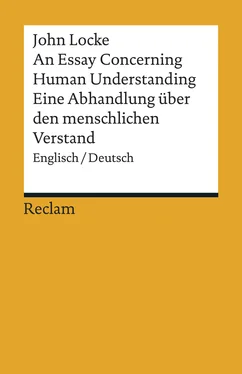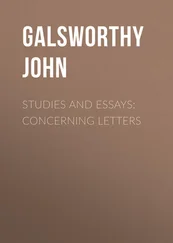§ 9. But had all Mankind, every where, a Notion of a God , (whereof yet History tells us the contrary) it would not from thence follow, that the Idea of him was innate . For, though no Nation were to be found without a Name, and some few dark Notions of him; yet that would not prove them to be natural Impressions on the Mind, no more than the Names of Fire, or the Sun, Heat, or Number, do prove the Ideas they stand for, to be innate, because the Names of those things, and the Ideas of them, are so universally received, and known amongst Mankind. Nor, on the contrary, is the want of such a Name, or the absence of such a Notion out of Men’s Minds, any Argument against the Being of a God, any more, than it would be a Proof, that there was no Load-stone in the World, because a great part of Mankind, had neither a Notion of any such thing, nor a Name for it; […]
[…]
§ 12. Indeed it is urged, That it is suitable to the goodness of God, to imprint, upon the Minds of Men, Characters and Notions of himself , and not to leave them in the dark, and [80]doubt, in so grand a Concernment; and also by that means, to secure to himself the Homage and Veneration, due from so intelligent a Creature as Man; and therefore he has done it.
This Argument, if it be of any Force, will prove much more than those, who use it in this case, expect from it. For if we may conclude, that God hath done for Men, all that Men shall judge is best for them, because it is suitable to his goodness so to do, it will prove, not only, that God has imprinted on the Minds of Men an Idea of himself; but that he hath plainly stamp’d there, in fair Characters, all that Men ought to know, or believe of him, all that they ought to do in obedience to his Will; and that he hath given them a Will and Affections conformable to it. This, no doubt, every one will think it better for Men, than that they should, in the dark, grope after Knowledge. […] But the Goodness of God hath not been wanting to Men without such Original Impressions of Knowledge, or Ideas stamped on the Mind: since he hath furnished Man with those Faculties, which will serve for the sufficient discovery of all things requisite to the end of such a Being; and I doubt not but to shew, that a Man by the right use of his natural Abilities, may, without any innate Principles, attain the Knowledge of a God, and other things that concern him. God having endued Man with those Faculties of knowing which he hath, was no more obliged by his Goodness, to implant those innate Notions in his Mind, than that having given him Reason, Hands, and Materials, he should build him Bridges, or Houses; which [82]some People in the World, however of good parts, do either totally want, or are but ill provided of, as well as others are wholly without Ideas of God , and Principles of Morality; or at least have but very ill ones. The reason in both cases being, That they never employ’d their Parts, Faculties, and Powers, industriously that way, but contented themselves with the Opinions, Fashions, and Things of their Country, as they found them, without looking any farther. […]
[…]
§ 14. Can it be thought, that the Ideas Men have of God, are the Characters, and Marks of Himself, engraven in their minds by his own finger, when we see, that in the same Country, under one and the same Name, Men have far different , nay, often contrary and inconsistent Ideas , and conceptions of him ? Their agreeing in a Name, or Sound, will scarce prove an innate Notion of Him.
[…]
§ 16. […] ’Tis as certain, that there is a God, as that the opposite Angles, made by the intersection of two strait Lines, are equal. There was never any rational Creature, that set himself sincerely to examine the truth of these Propositions, that could fail to assent to them: Though yet it be past doubt, that there are many Men, who having not applied their Thoughts that way, are ignorant both of the one and the other. If any one think fit to call this (which is the utmost of its extent) universal Consent, such an one I easily allow: But such an universal Consent [84]as this, proves not the Idea of God , no more than it does the Idea of such Angles, innate .
§ 17. Since then though the knowledge of a GOD , be the most natural discovery of humane Reason, yet the Idea of him , is not innate , as, I think, is evident from what has been said; I imagine there will be scarce any other Idea found, that can pretend to it. […] I must own, as far as I can observe, I can find none, and would be glad to be informed by any other.
§ 18. I confess, there is another Idea , which would be of general use for Mankind to have, as it is of general talk as if they had it; and that is the Idea of Substance , which we neither have, nor can have, by Sensation or Reflection . If Nature took care to provide us any Ideas , we might well expect it should be such, as by our own Faculties we cannot procure to our selves: But we see on the contrary, that since by those ways, whereby other Ideas are brought into our Minds, this is not, We have no such clear Idea at all, and therefore signify nothing by the word Substance , but only an uncertain supposition of we know not what; ( i. e. of something whereof we have no particular distinct positive) Idea , which we take to be the substratum , or support, of those Ideas we do know.
[…]
§ 20. […] If there be any innate Ideas , any Ideas , in the mind, which the mind does not actually think on; they must be lodg’d in the memory, and from thence must be brought into view by Remembrance; i. e. must be known, when they are [86]remembred, to have been perceptions in the mind before, unless Remembrance can be without Remembrance. For to remember is to perceive any thing with memory, or with a consciousness, that it was known or perceived before: without this, whatever Idea comes into the mind is new, and not remembred: This consciousness of its having been in the mind before, being that, which distinguishes Remembring from all other ways of Thinking. […] whatever Idea being not actually in view, is in the mind, is there only by being in the memory; and if it be not in the memory, it is not in the mind; and if it be in the memory, it cannot by the memory be brought into actual view, without a perception that it comes out of the memory, which is this, that it had been known before, and is now remembred. […] By this it may be tried, whether there be any innate Ideas in the mind before impression from Sensation or Reflection. I would fain meet with the Man, who when he came to the use of reason, or at any other time remembred any of them: And to whom, after he was born, they were never new. If any one will say, there are Ideas in the mind, that are not in the memory; I desire him to explain himself, and make what he says intelligible.
[…]
§ 22. To conclude, some Ideas forwardly offer themselves to all Men’s Understandings; and some sorts of Truths result from any Ideas , as soon as the mind puts them into Propositions: Other Truths require a train of Ideas placed in order, a due comparing of them, and deductions made with attention, before they can be discovered, and assented to. Some of the [88]first sort, because of their general and easy reception, have been mistaken for innate: But the truth is, Ideas and Notions are no more born with us, than Arts and Sciences; though some of them, indeed, offer themselves to our Faculties, more readily than others; and therefore are more generally received. […]
Читать дальше












